International Issues
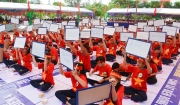
External information and communication in protecting sovereignty over sea and islands
(LLCT) - Based on the “tripod” - communication, political and diplomatic moves, and field struggle, the Vietnamese Party and State have proposed many policies to maintain water sovereignty over the past several years.

Using international legal means to protect water sovereignty
(LLCT) - There are currently two primary disputes in the East Sea: the territorial disputes over the Paracel and Spratly islands, and the disputes related to the water boundaries and continental shelf. The latter conflict was prompted when multiple countries bordering the East Sea applied United Nations Convention on the Law of the Sea (UNCLOS) principles to justify their own water boundaries and continental shelf.
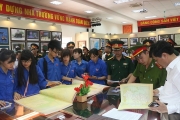
Protection of sovereignty over sea and islands based on international laws
(LLCT) - Vietnam has authentic and convincing historical evidence to confirm its ownership of the Hoang Sa and Truong Sa (Paracel and Spratly) archipelagos. It also has evidence of continuous and peaceful enforcement of the sovereignty according to international laws, specifically the United Nations Convention on the Law of the Sea (UNCLOS)(1).
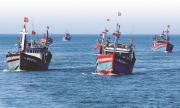
How the East Sea issue has shaped the formation and development of ASEAN
(LLCT) - Located in a strategic position linking the Indian Ocean with the Pacific, the East Sea has become a vital sea route where almost all international sea routes interact. Throughout history, conflict has surrounded the East Sea. The area is becoming increasingly dangerous and complicated, especially due to China’s ambition, which exists not only in its declarations but also in its actions, such as increasing its national defence spending in the region, and transforming islands and reefs into military bases in Vietnam’s Spartly archipelago regardless the laws and world opinion.

Investment in youth: A strategic Choice and a significant asset for sustainable growth in Africa
(LLCT) - Over the last few years, the concept of “Demographic Dividend” has gained strong momentum among African nations and African politicians and decision makers as an important means for boosting and accelerating economic and social development. Africa’s youth represents its significant asset for sustainable growth if properly harnessed. The time to harness the demographic dividend and start investing in human resource, particularly youth is now.
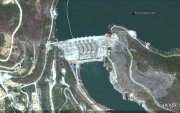
Water insecurity in the Mekong River and its consequences for the region
(LLCT) - Mekong is one of the ten largest rivers in the world. It flows through six nations and its biodiversity ranks second in the world in terms of scale. At present, scores of hydroelectric dam projects on the main stem of the River and its tributaries, coupled with the impact of climate change, are posing a serious threat to water security.
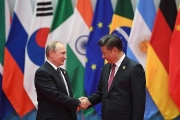
Major factors influencing China’s national security and international strategic choices in coming years
(LLCT) - As China continues to develop and international realities change, China’s foreign policy in the near future will gradually turn into a “pivotal power” consisting of three pillars: diplomatic relations between a “new style power” and the United States to create a new framework for cooperation between the world’s most powerful countries, as opposed to traditional relations between powers (characterized by either an alliance or opposition); regional diplomacy in the form of bilateral or multilateral cooperation; and multilateral diplomacy where China participates in the planning of regional and global mechanisms and organizations and even establishes new mechanisms for cooperation with China as the pivot.
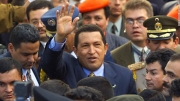
An overview of the left-wing movements in Latin America
(LLCT) - The turning point for Latin American Leftists was Venezuela's 1998 presidential election that resulted in Hugo Chavez's victory.

Global security 2016: A forecast
(LLCT) - In 2015, international security was challenged by intertwining conflicts that posed threats to peaceful nations around the world, in the midst of numerous political instances of cooperation, competition and struggle. However, the trend of peace and cooperative development remains prevalent. As the multipolar world continues to take shape, a number of unstable factors have appeared as a threat to global security. Based on evaluations of 2015, analysis experts have released an international security forecast, which covers the issues that may arise with military and economic security in the coming period.
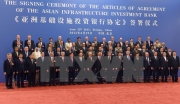
“One Belt, One Road” initiative and its impact on world economics and politics
(LLCT) - In November 2014, at the 22nd Asia Pacific Economic Cooperation Forum (APEC) Summit in Beijing, he officially announced the “One Belt, One Road” initiative. Soon after that, the Communist Party and Government of China released details of the initiative, which consisted of two parts.

The impact of China’s “energy diplomacy” policy on Southeast Asia
(LLCT) - China is currently the world’s second largest energy consumer, only behind the United States, and was the world’s largest crude oil importer in April 2015(1). In order to ensure its stable energy supplies at reasonable prices, the Chinese government has developed a national energy strategy and energy security policy with very specific guidelines.
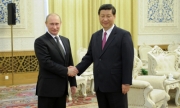
The geopolitical US - China – Russia “troika” in the 21st century
(LLCT) - A troika is the image that can well describe the relationship between the three biggest powers: the United States, China and Russia in the contemporary world, with each being a leg, depending on as well as competing against each other. This troika relationship exerts certain impacts and influences on the life of many regions and the whole world, mostly developing countries, and especially Vietnam. As such, it is imperative for developing countries, including Vietnam to study this “troika” carefully as well as identify its impacts so as to work out appropriate policies.
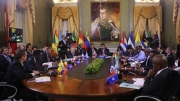
ALBA:The dynamic geopolitical initiative of international integration in Latin America
(LLCT) - Since the late 20th century, globalization has gradually been an inevitable trend in the world. The modern productive force created by the scientific and technological revolution, including the means of communication and transportation as well as the prevailing market economy, has made globalization an irreversible process.
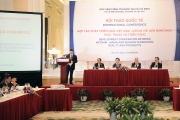
Vietnam - Russia relations: situation and prospects
(LLCT) - The current relationship between Vietnam and the Russian Fede-ration is a continuation of the friendly, traditional bond between Vietnam and the former Soviet Union. Since the conclusion of the Cold War, the bilateral relations between the two countries have experienced ups and downs, which reflects their respective foreign policy adjustments and priorities. The political nature of the ties has also changed profoundly due to political, economic and social transformations in Russia. Nevertheless, given the two countries’ interests, the Vietnam - Russia relations have rapidly escaped the stagnation of the 1990s. They tend to have improved since 1994 when the two countries signed the Treaty on fundamental principles of the bilateral friendly ties.
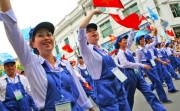
The internationalism of the modern-day working class
(LLCT) - In essence, the internationalism of the working class refers to unity of the thinking, will, solidarity, cooperation and action of the class across the world by means of activities of international organizations and political parties and organizations of the class against capitalism and for the building of socialism and communism in the world. It is also called proletarian or socialist internationalism. Given the current complex political situation in the world, the internationalism of the working class has undergone a range of changes. The article discusses practical bases for the internationalism of the working class and its new manifestations.
Journal Archives
Journal Archives
Media
Photo Gallery
Contact us

 International Issues
International Issues


